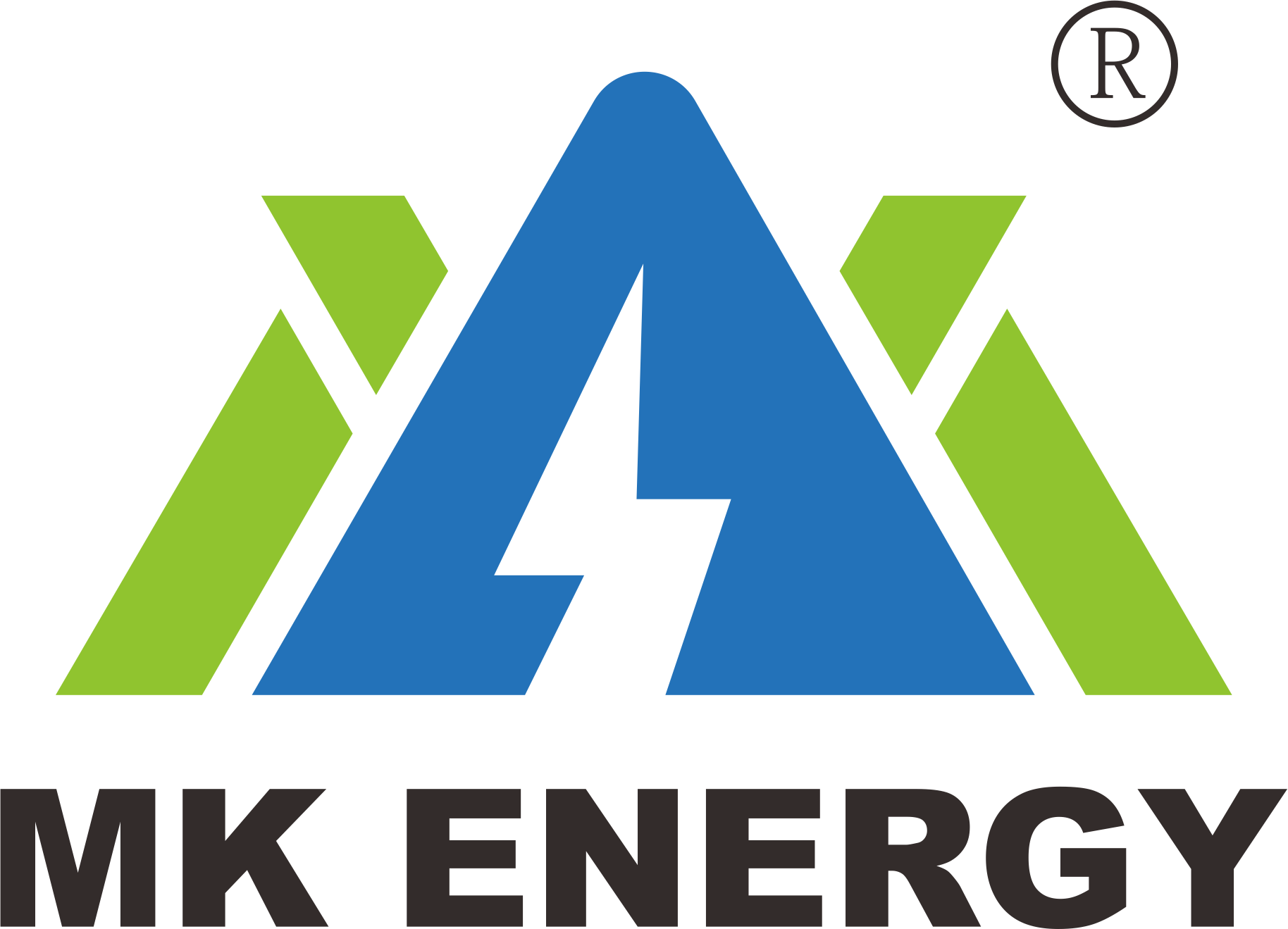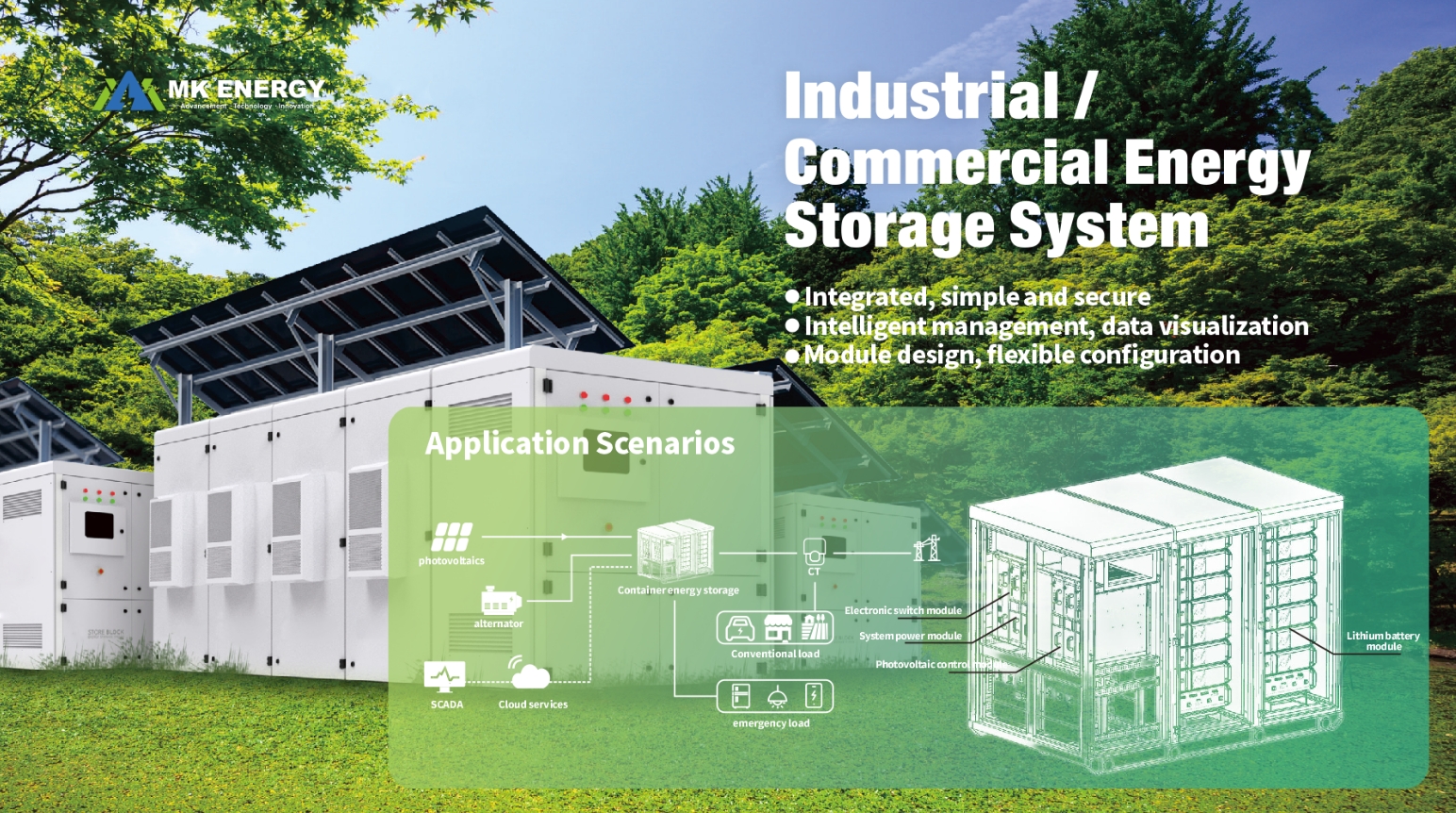In today’s rapidly evolving industrial landscape, businesses are constantly seeking ways to optimize energy usage, reduce operational costs, and improve overall efficiency. One of the most promising solutions to achieve these goals is the implementation of industrial-grade energy storage systems (ESS). These systems, especially those powered by lithium battery packs, offer significant advantages over traditional energy storage solutions by providing higher efficiency, reliability, and scalability.
From data centers and manufacturing plants to renewable energy facilities like wind and solar power stations, lithium battery pack systems are playing a key role in helping industries manage their energy needs, reduce dependence on the grid, and ensure continuous operations. At MK, we are committed to providing cutting-edge lithium battery solutions that help industrial clients optimize their energy use and drive greater operational performance.
In this article, we will explore the benefits of industrial-grade energy storage solutions, the role of lithium battery pack systems in enhancing energy efficiency, and how these systems can help businesses across various sectors achieve long-term success.
What Are Industrial-Grade Energy Storage Solutions?
Industrial-grade energy storage solutions are large-scale systems designed to store electricity for use in commercial and industrial settings. These solutions typically include energy storage units, such as lithium battery packs, integrated with renewable energy generation sources (e.g., solar or wind) or the power grid. The energy stored in these systems can be used to meet peak demand, provide backup power, or ensure continuous operation when the primary energy source is unavailable.
Industrial ESS can be used across a wide range of applications, from balancing energy supply and demand in data centers to storing excess renewable energy at wind and solar farms. By efficiently storing energy, these systems help mitigate the volatility of energy prices, improve energy reliability, and support the transition toward a more sustainable energy infrastructure.
The Role of Lithium Battery Packs in Industrial Energy Storage Systems
Lithium battery packs have quickly become the preferred choice for industrial energy storage due to their superior performance characteristics, including high energy density, longer lifespan, faster charging times, and greater efficiency. Let’s explore why lithium batteries are ideal for large-scale industrial applications:
High Energy Density for Large-Scale Applications
Lithium-ion batteries are known for their high energy density, meaning they can store more energy per unit of weight and volume compared to other battery technologies like lead-acid. This feature is particularly valuable in industrial settings, where space is often limited and the demand for power is high. Lithium battery packs enable businesses to store large amounts of energy in a compact, efficient format, making them ideal for industries with high energy needs, such as manufacturing and data centers.
Longer Lifespan and Durability
One of the standout features of lithium battery systems is their longevity. Lithium-ion batteries typically last much longer than traditional battery systems, with lifespans of 10-15 years or more. This extended lifespan reduces the need for frequent replacements, cutting down on maintenance costs and ensuring that the energy storage system continues to operate efficiently over the long term. This durability makes lithium battery packs an excellent investment for industrial operations that rely on constant, reliable energy availability.
Faster Charging and Discharging
Lithium batteries excel in fast charging and discharging, making them well-suited for industrial applications that require quick energy replenishment or delivery. For example, in data centers, where uptime is critical, lithium battery packs can quickly recharge during low demand periods and discharge rapidly during peak usage times, ensuring that power is always available when needed. This feature also makes them highly effective in managing energy loads, preventing brownouts, and ensuring smooth operations even during peak energy consumption times.
Efficiency and Low Maintenance
Lithium-ion batteries are more efficient than traditional lead-acid batteries, with energy losses being significantly lower during both charging and discharging processes. This efficiency translates into better performance and lower operational costs, as businesses require less energy to store and retrieve the same amount of power. Additionally, lithium battery systems require far less maintenance compared to lead-acid alternatives, reducing downtime and operational disruptions. These benefits are especially important in high-stakes industrial environments where efficiency and reliability are paramount.
Scalability
Lithium battery systems are highly scalable, meaning that businesses can easily increase or decrease the storage capacity depending on their energy needs. This scalability is particularly advantageous for industries experiencing growth or fluctuating energy demands, such as factories or renewable energy facilities. Lithium battery packs can be added or removed from the system without significant disruption, allowing businesses to adapt their energy storage systems to meet changing requirements.
Applications of Lithium Battery Packs in Industrial Settings
Lithium battery pack systems are transforming how industries approach energy management. Below are some key applications of these systems in large-scale industrial environments:
Data Centers: Ensuring Uninterrupted Power Supply
Data centers are critical to the digital infrastructure of modern society, hosting everything from cloud computing services to critical enterprise applications. However, they are also energy-intensive operations that require constant power. A power outage in a data center can lead to catastrophic downtime, loss of data, and significant financial losses.
Lithium battery packs play a critical role in providing an uninterrupted power supply (UPS) for data centers. These systems ensure that, in the event of a grid failure or other power disruptions, the data center remains operational while backup power is provided. Additionally, lithium battery storage systems enable data centers to store excess energy during off-peak hours when electricity is cheaper, reducing energy costs and ensuring the efficient operation of critical infrastructure.
Manufacturing Plants: Enhancing Operational Efficiency
In manufacturing environments, consistent power is necessary for maintaining production schedules, reducing downtime, and improving efficiency. Lithium battery storage systems can store energy generated during periods of low demand (for example, during the night or when renewable energy sources like solar or wind are abundant) and release it during periods of high demand, reducing the need to purchase expensive energy from the grid during peak hours.
Moreover, by integrating energy storage systems with renewable energy generation, manufacturing plants can reduce their carbon footprint, lower energy costs, and even become more energy-independent. Lithium battery packs also provide a reliable backup power solution to ensure production lines keep running smoothly in the event of power outages.
Wind and Solar Power Stations: Optimizing Renewable Energy Use
One of the primary challenges of renewable energy sources like wind and solar is their intermittency. Solar energy production, for example, depends on sunlight, and wind energy production depends on wind speed, making both sources variable. To overcome these challenges, wind and solar power stations use energy storage systems to store excess energy generated during favorable conditions for later use.
Lithium battery systems offer an ideal solution for this purpose. Their high efficiency and fast charging/discharging capabilities allow renewable energy providers to store and deploy energy in real-time, ensuring a steady and reliable supply of power. By using lithium battery storage, renewable energy stations can smooth out fluctuations in energy generation, reduce grid dependency, and optimize the use of green energy.
Electric Vehicles (EVs) and Charging Stations
As the world shifts towards electric vehicles (EVs), the need for efficient charging infrastructure becomes increasingly important. Lithium battery pack systems are also being used in large-scale EV charging stations to manage grid demand and store energy for fast and efficient vehicle charging. These systems can balance energy loads, store off-peak electricity, and quickly release energy to ensure rapid and reliable charging for EVs.
Conclusión
Industrial-grade energy storage solutions, powered by efficient and reliable lithium battery pack systems, are essential for businesses looking to optimize energy use, reduce costs, and improve operational efficiency. From data centers and manufacturing plants to renewable energy facilities, these systems provide reliable, scalable, and cost-effective solutions to meet the energy demands of modern industries.
At MK, we are proud to offer advanced lithium battery solutions designed to help businesses achieve greater energy optimization and contribute to a sustainable future. As industries continue to evolve and embrace smarter energy management practices, lithium battery systems will remain at the core of this transformation, enabling a greener, more efficient, and cost-effective industrial landscape.



